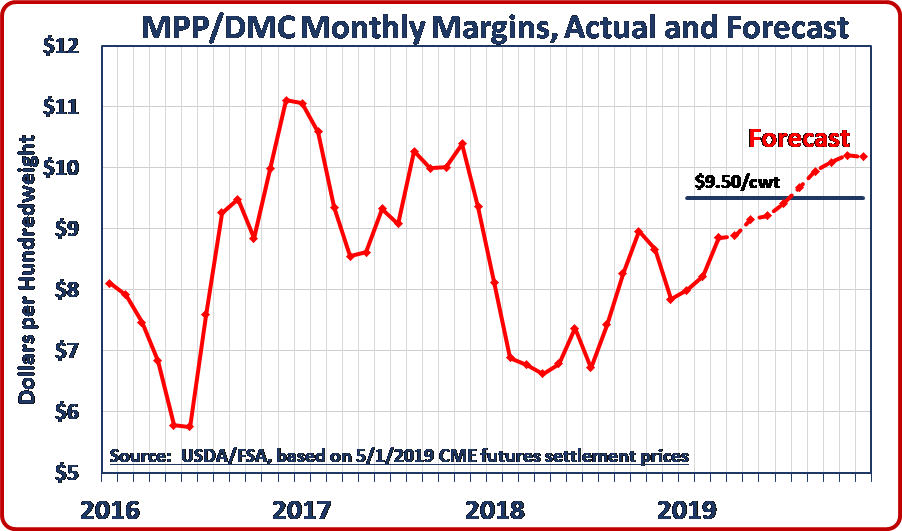While U.S. milk production increased 103 million pounds in the first three months of 2019 according to the USDA, the Cooperatives Working Together (CWT) export assistance program for member cooperatives have captured sales contracts that will move overseas five times that amount in milk equivalent this year, proving again the self-help program’s worth to U.S. dairy farmers.
In April, CWT members secured 52 contracts to sell 1.2 million pounds of American-type and Swiss cheese, 1.2 million pounds of butter, 1.3 million pounds of whole milk powder, and 1.9 milk pounds of cream cheese. These products are going to customers in Asia, Central and South America, and the Middle East, and will be shipped April through October 2019.
These sales bring the total 2019 CWT-assisted dairy product exports to 26.6 million pounds of cheese, 4 million pounds of butter, 23.4 million pounds of whole milk powder, and 1.9 million pounds of cream cheese. These transactions will move the equivalent of 520.8 million pounds of milk on a milkfat basis overseas, all in 2019.
2019 will be pivotal for dairy farmers, with higher milk prices a necessity following the challenges of the past half-decade. Dairy farmers and dairy cooperatives now and in the years ahead will increasingly rely on a thriving export market for growth and viability. CWT provides a means to move domestic dairy products to overseas markets by helping to overcome certain disadvantages such as the domestic/global price gap and shipping costs.
The amounts of dairy products and related milk volumes reflect current contracts for delivery, not completed export volumes. CWT will pay export assistance to the bidders only when export and delivery of the product is verified by the submission of the required documentation.
All cooperatives and dairy farmers are encouraged to add their support to this important program. Membership forms are available here.






